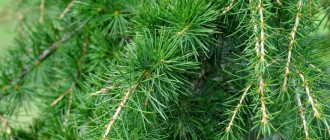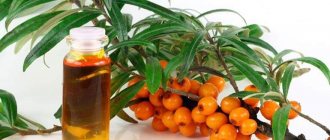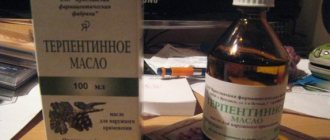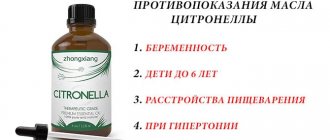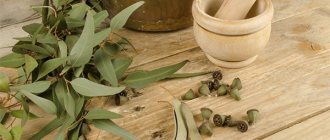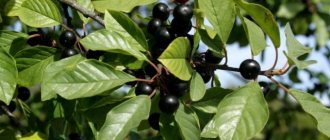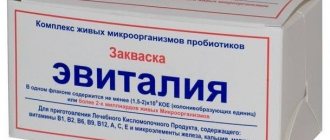Application of raw materials
Eucalyptus wood is quite hard and dense. It is very often used to build ships, various tools and paper production.
The bark of this tree contains a large amount of tannins. Healing decoctions are made from it.
As for the leaves of the plant, they also do not disappear. The well-known eucalyptus essential oil is made from them. This product is actively used for inhalation procedures, rinsing, and also as a distraction for rheumatism, neuralgia and lumbago.
The properties of eucalyptus oil are such that it is included in many medicinal ointments intended for wound healing. This substance is also ideal for the treatment of pulmonary diseases.
External and internal use
Eucalyptus oil has excellent antiseptic properties. When used externally, this remedy treats:
- genitourinary diseases;
- dermatitis;
- measles;
- chicken pox;
- herpes;
- shingles.
According to numerous positive reviews , eucalyptus oil has proven itself to be excellent for relieving muscle tension that occurs after prolonged physical work or exercise.
Doctors very rarely prescribe eucalyptus oil to patients for oral administration, because... it is believed that it greatly irritates the mucous membrane of the esophagus and stomach, and also has a negative effect on the functioning of the liver. Typically, this remedy is prescribed to patients with diabetes at the rate of 1 drop of oil per 20 grams. milk.
Description
Eucalyptus essential oil (the properties and uses of this substance are described below) is a clear and easily mobile liquid. It may be colorless or slightly yellow. This product has a characteristic and recognizable smell. Many consumers describe it as cooling, resinous, and light.
As mentioned above, eucalyptus is native to Tasmania and Australia. The natives of these lands called this evergreen plant the “tree of life” and the “diamond of the forests.”
Even in ancient times, this product was used to treat infectious diseases and wounds, relieve fatigue and muscle pain, as well as for the runny nose and as a seasoning in cooking.
A few words about globular eucalyptus
The greatest medicinal value is eucalyptus globulus, rod-shaped and ash or silver eucalyptus. Spheroid is considered a pharmacopoeial plant in most countries where it grows. The leaves have a dense leathery covering that protects against excessive evaporation of water, which saves the plant in dry times. The root system of a tree works on the principle of a pump and is distinguished by its ability to extract water from great depths. Therefore, the plant can be used to naturally drain swampy areas.
Composition and method of preparation
Few people know what eucalyptus oil contains. The instructions indicate that this product consists of 60-80% cineole. Such a high content of this component determines its therapeutic effect.
In addition to cineole, this product contains tannins, organic acids, flavonoids and various aldehydes. According to experts, the oil contains about 40 medicinal components in total.
How is eucalyptus oil obtained? This natural drug can be purchased in a ready-made form at the pharmacy. However, before being placed in a bottle, this product goes through many different processing steps.
As is known, eucalyptus oil is eucalyptus through hydrodistillation. Young shoots and leaves of fast-growing plant species (for example, spherical, ashen and twig-shaped) are subjected to this procedure. Typically, approximately 3-5 kg of essential oil is produced from one ton of raw materials.
Common types of eucalyptus trees and their main characteristics
Eucalyptus is a large genus of evergreen woody plants that belong to the Myrtaceae family, it includes more than 700 species.
The homeland is the tropics and subtropics. They grow in the forests of the Australian continent, on the New Zealand Islands, Tasmania, New Guinea and the Indonesian archipelago. One variety is common throughout the Philippine archipelago. Outside these areas, only 15 species have been found. Eucalyptus rainbow is the only one of the entire family that grows north of the equator.
There are not only wild eucalyptus trees, but also those that are planted in the garden and as a houseplant.
The most common types of eucalyptus are:
- Cineria.
- Populus.
- Globular.
- Parvifolia.
- Rod-shaped.
- Rainbow.
- Baby Blue.
- Gunny.
- Nikoli.
Eucalyptus rodum is an evergreen tree plant. In nature, the main growing zone is Tasmania, South Wales and Victoria, extending into Queensland and the southern part of the Australian continent. It grows as a small, rough-barked tree on depleted sands near the ocean coast or as large trees in the area of moist mountain forests. It is characterized by increased frost resistance.
Ash eucalyptus is an evergreen plant found in the states of South Wales and Victoria on the Australian mainland. Grows well in waterlogged red soils. It has a high level of winter hardiness and can withstand short-term temperature drops down to -12… -11°C.
photo of eucalyptus globulus
Eucalyptus globulus is an evergreen tree species. It grows wild on the Australian continent in the states of Victoria, South Wales, and the island of Tasmania. Cultivated on the African, American and European continents. This species was the first introduced to the Black Sea and Caucasian coast. Belongs to the group with an average degree of frost resistance. Withstands short-term temperature drops to - 7... - 8°C. This species is one of the fastest growing.
You can often find Eucalyptus globulus in gardens; this plant requires regular pruning. Such manipulations lead to the fact that it stops blooming, but fragrant foliage appears in large quantities.
The plant grows best in a well-lit place, but it requires regular and abundant watering so that the soil does not dry out.
Propagation can be done by cuttings.
In addition to Eucalyptus globulus, Eucalyptus ash and Eucalyptus twig are also of medical and cosmetological importance. These varieties are used for the production of medicinal raw materials. It is dried and sheet briquettes are made from it. The collected leaves and shoots are used to obtain oil.
The product can be purchased ready-made, or you can prepare it yourself at home
Basic properties
What is special about eucalyptus essential oil? We will describe the properties and application of this product right now.
The product in question has pronounced phytoncidal properties. It is actively used as an analgesic, antiseptic and antiparasitic agent.
It should also be noted that the effectiveness of the oil in question lies not only in the properties of its unique components, but in their ability to produce vapor. The masculine aroma of this plant can quickly restore the human body after stress and various diseases. This oil also increases concentration and sexual energy, reveals internal reserve and intellectual capabilities.
Combined use with peppermint oil
The combined use of eucalyptus oil and mint allows for maximum antimicrobial effects against a number of bacteria that cause diseases of the ENT organs and oral pathologies. This combination has antimicrobial, antifungal, anti-inflammatory and slight analgesic effect.
Here are several recipes for the effective use of mint and eucalyptus oils. Mint works great against viruses, and eucalyptus works great against germs.
Features of the product
How does eucalyptus essential oil affect the human body? The properties and uses of this product are known to many. However, not everyone knows about the benefits of this medicine compared to others.
- Eucalyptus, or rather the oil extracted from its leaves, has a variety of uses. Thanks to its antiseptic, anti-inflammatory and anti-infective effects, it is indispensable for colds, including coughs and throat infections. It should also be noted that this product is prescribed for a runny nose.
- Due to the pronounced antipyretic properties that are inherent in eucalyptus, it is actively used to treat bronchitis, influenza and tuberculosis.
- The product in question has a positive effect on the human nervous system. It helps improve concentration and activate intellectual capabilities. Thanks to the use of this oil, the body, which has suffered severe stress and various diseases, very quickly recovers. This drug also eliminates emotional overload and relieves tension.
- Eucalyptus oil is prescribed to children very often. This is due to the fact that it strengthens the immune system well. Thus, this remedy is always included in the complex therapy of herpes and hepatitis. With the help of the product in question, inflammatory processes (including in the genitourinary area), respiratory and viral infections are also eliminated. Doctors often recommend using it for the treatment of dermatological diseases.
- In the presence of acne and age spots, this remedy is also highly effective. It promotes the healing of abrasions, wounds, as well as minor frostbite and burns. In addition, this oil has a beneficial effect on hair.
- Using eucalyptus oil, you can permanently eliminate dental diseases, including inflammation and bleeding gums.
- The beneficial effect of this product is also observed in relation to the gastrointestinal tract. In addition, the oil can lower blood sugar levels, especially in patients with diabetes.
- The use of eucalyptus oil helps improve blood circulation. This happens due to the enrichment of blood with O2.
- The product in question has an analgesic effect. It eliminates not only pain in the head, but also vertebral and joint pain. This remedy is also often prescribed for the treatment of rheumatism and arthritis.
What is eucalyptus oil?
Eucalyptus oil is produced by hydrodistillation, which helps to preserve all the beneficial compounds of the raw materials used in production.
The product obtained from plant raw materials is classified as oil esters. The smell of eucalyptus is distinctly coniferous, tart and cooling. The color of eucalyptus essential oil is yellow or may be completely absent.
Chemical composition and beneficial properties of essential oil
All medicinal properties and contraindications for the use of this essential product are determined by the chemical composition and the body’s sensitivity to it.
In folk medicine and aromatherapy, this product is used as a powerful natural antiseptic.
Eucalyptus oil is rich in biologically active components that can support human health
The product has a wide range of useful qualities, which are determined by its chemical composition.
The oil contains:
- phytoncides;
- resin components;
- tanning components;
- healing bitters;
- flavonoids;
- organic acids;
- aldehydes;
- camphenone;
- globulol;
- phellandrene;
- aromadendren;
- vitamin complexes C, E, PP and group B.
the product is obtained from young leaves and shoots of the plant
Phellandrene and aromadendrene give the oil special chemical properties; these compounds, interacting, transform diatomic oxygen into triatomic ozone. At home, this property of eucalyptus oil is widely used for colds, as well as for coughs in children and adults.
In addition to organic compounds, the product contains a high content of minerals that affect the properties of eucalyptus oil.
It revealed the content of compounds containing:
- boron;
- iron;
- potassium;
- cobalt;
- magnesium and other biologically active elements.
The main active component is cineole. The concentration of this compound reaches 75-80%. The substance can have a pronounced antiseptic, expectorant and anti-inflammatory effect on the human body.
Due to its wide range of beneficial properties, the product is used in the treatment and prevention of various pathologies
The presence of a rich chemical composition has led to the fact that eucalyptus oil has been used in the treatment of a large number of pathological conditions.
It can have the following effects:
- relaxing;
- restorative;
- strengthening;
- increases potency and sexual desire;
- increases attention;
- enriches tissues with oxygen;
- eliminates drowsiness;
- relieves swelling and itching;
- eliminates unpleasant odors;
- has an expectorant effect;
- helps accelerate the healing of wounds, burns and other skin lesions;
- has an antiviral effect;
- provides anti-pediculosis effect;
- reduces high temperature;
- has an analgesic effect on joints and spine;
- treats skin pathologies.
Eucalyptus oil (instructions for use) is recommended for use in small dosages during therapeutic and restorative procedures. This is due to the fact that the product has a strong therapeutic effect. And its overdose can cause headaches.
the product has contraindications for use, which must be followed so as not to harm the body
Contraindications and side effects. Precautionary measures
When using oil, one should take into account the possible presence of contraindications for use in the patient, which are:
- individual intolerance to the product or its components;
- the presence of sensitive skin;
- the presence of symptoms of hypertension in the patient’s body;
- increased dryness of the skin;
- tendency to allergic reactions;
- breastfeeding period;
- first trimester of gestation;
- bronchial asthma;
- children under 6 years old;
- whooping cough;
- thinning of the mucous membrane of the respiratory system;
- period of chemotherapy;
- epilepsy;
- increased blood pressure.
An essential product obtained from the leaves and young shoots of eucalyptus is considered a powerful allergen. For this reason, its improper use or neglect of contraindications will provoke the following side effects in the patient:
- rash and burning sensation on the skin in areas treated with the composition;
- breathing problems;
- attacks of nausea;
- pain in the head;
- increased frequency of myocardial contractions;
- disruption of the gastrointestinal tract;
- functional deterioration in the functioning of the liver and kidneys.
If during medical or cosmetic procedures at least one of these symptoms appears, you should immediately stop using the product. If side effects do not go away for a long time, you should consult a doctor for qualified assistance.
To prevent unpleasant consequences, the following precautions must be observed:
- Do not allow the oil solution to come into contact with mucous membranes. And if such a situation occurs, it is necessary to rinse the affected area with plenty of water.
- Do not increase the dosage above the recommended one.
- An expired product should not be used for medical procedures. This can cause severe damage to the skin.
- Before using the product, an allergy test is required. For this purpose, a minimum amount of ether is applied to the wrist; if after a day there is no irritation, then the ether-based product can be used for medical or cosmetic procedures.
Before using drops or an oil solution, even in the absence of an allergic reaction and contraindications, you must consult a doctor on this issue.
photo of evergreen eucalyptus trees
Use of the drug
What else is eucalyptus essential oil used for? The properties and uses of this drug are indicated in this article. The mentioned product can be prescribed to disinfect the air, as well as neutralize unpleasant odors. As you know, it refreshes and disinfects the air, and therefore is an indispensable drug for seasonal viral epidemics.
Another useful property of this product is that the pronounced aroma of eucalyptus repels mosquitoes and lice. Therefore, it is often used to disinfect premises.
Release forms
Buyers often find it difficult to decide which type of oil to choose - simple or essential. To make the right choice, you need to know about the main differences between these concepts. Aromatic oil is a product that is made in a laboratory from a special formula of essential oil. It has a much more oily structure, leaves greasy stains on the body and clothes, and dissolves very slowly in alcohol-containing liquids. Its most important difference is its very rich aroma.
Essential oil is a completely natural product that is extracted from plants (in our case, eucalyptus). Therefore, essential oil has a slightly pungent odor and also has a characteristic taste. Despite the fact that this product is called oil, it does not leave any greasy stains - in a warm room it evaporates very quickly and only a pleasant aroma remains.
Eucalyptus broom
Above we told you about how eucalyptus oil is obtained. However, it should be noted that such a product is not always used in its pure form. In some cases, the leaves of this plant are not processed. For example, eucalyptus brooms (sometimes used in combination with birch, oak and juniper) are very popular in bath procedures and in the sauna.
During the vaping process, oil begins to actively evaporate from young shoots. Thus, a person inhales vapors that have a beneficial effect on his respiratory tract, immune system and skin.
It should also be noted that when you have a runny nose, eucalyptus leaves are often applied to the nose and kept in this position for half an hour. For the best therapeutic effect, the leaf should first be kneaded with your hands.
How to choose and store oil?
When purchasing oil, you should pay attention to the following criteria - color, smell, texture and manufacturer.
A quality product has a faint yellow tint or may be completely transparent. Natural ether should give off a strong aroma of coniferous plants. The natural product has strong fluidity and good absorption.
When purchasing oil, it is recommended to give preference to products that are made in Australia, Spain, Portugal and the USA.
If necessary, you can make eucalyptus oil yourself at home. For this purpose, you need to take the leaves and young shoots of Eucalyptus globulus, chop them and place them in a glass jar. The crushed raw material is poured with olive oil and mixed well so that the oil mixes with the leaves.
The closed jar is placed in the sun for 2 days. After 2 days, the mixture is filtered through a strainer and placed in a glass container for storage. The prepared composition should be stored in a cool and dry place. Shelf life is 6 months
Instructions for use
How and in what quantity should the product in question be used? According to the instructions, this drug is used as follows:
- Eucalyptus inhalations (hot) are carried out for 8-10 minutes. To do this, add 4 drops of ether to 200 ml of boiled water.
- You need to add 5-6 drops of oil to the aroma lamps.
- For taking aroma baths, 5 drops of ether are also used. If desired, it can be combined with homemade oils.
- It is recommended to add 2 drops of the product to aromatic medallions.
- For massage, use about 7 drops per 10 ml of base.
- When rubbing painful and inflamed areas, use 8 drops of oil, which are also added to 10 ml of the main product.
- In specialized shampoos, 5 drops of ether and 10 ml of base are used.
- In cosmetology, this drug is recommended to be used in an amount of 10 drops per 5 ml of base.
- When visiting saunas and baths, eucalyptus ether is good to combine with other types of oil. However, they should be taken in quantities of no more than 6 drops.
Restrictions on use
Many experts know that the product in question is a strong oil. After applying it to the skin, the patient often experiences a burning sensation, slight redness and tingling. As a rule, such phenomena last for 2-3 minutes, after which they disappear.
Doctors say this is a completely natural reaction. However, in some cases, against the background of the use of the ester in question, individual intolerance to its components is also possible.
Product reviews
Almost all reviews of medicines containing eucalyptus oil are positive. Patients say that the use of this unique product has a beneficial effect not only on a person’s well-being, but also on his mood. This medication also helps in solving such painful conditions as colds, sore throat, runny nose, radiculitis, neuralgia, arthritis, rheumatism and others. In addition, relaxing procedures using the ether in question help relieve fatigue, as well as replenish strength after a hard day.
As for negative messages, they are most often associated with the appearance of allergic reactions. In this case, it is better to refuse the drug.
Side effects and contraindications
This product is somewhat aggressive and is therefore considered a strong allergen. Side effects from its use may include a rash, a burning sensation, and sometimes impaired respiratory function. If such symptoms occur, you should stop using the extract. Absolute contraindications to its use are:
- bronchial asthma;
- first trimester of pregnancy;
- atrophy of the mucous membranes of the respiratory tract;
- tendency to have an allergic reaction;
- whooping cough;
- age less than 2 years;
- increased skin sensitivity.
